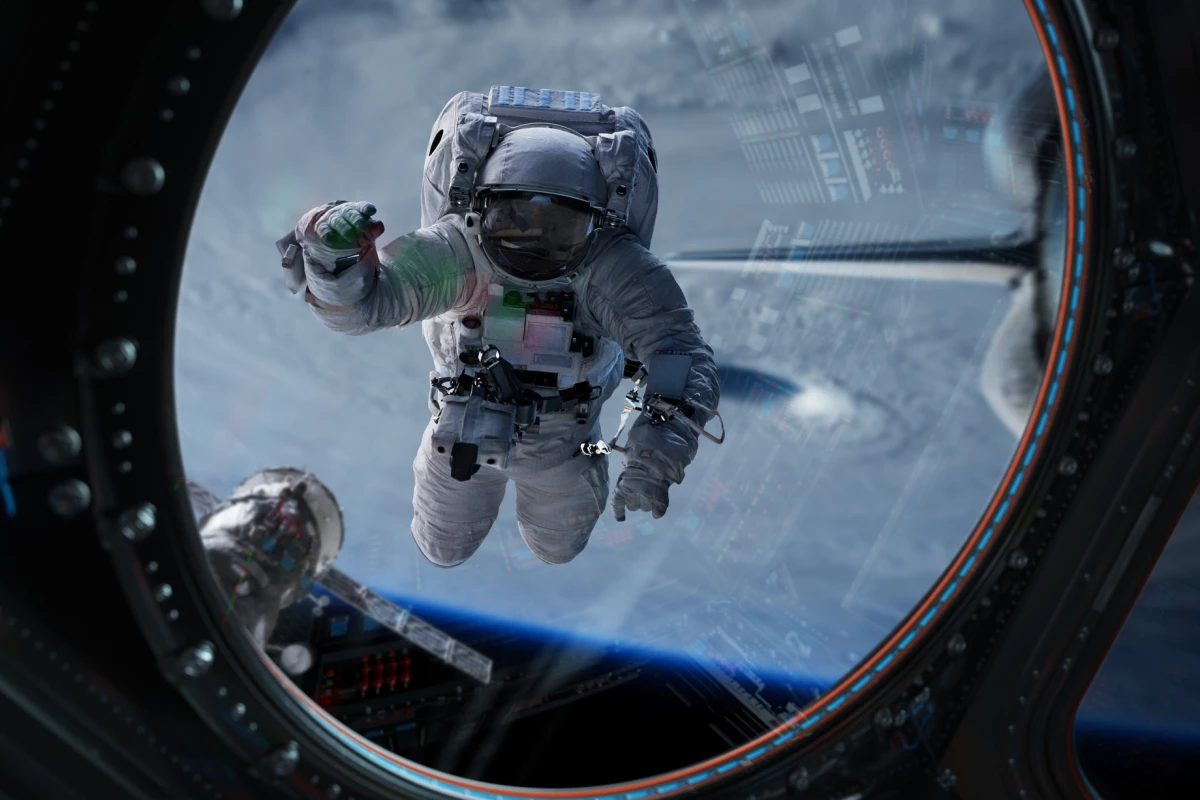Striking new research investigating blood samples taken from Russian cosmonauts before and after long stints on the International Space Station (ISS) has revealed significant elevations of several biomarkers that could indicate brain damage. The study adds to a small but growing body of research tracking the deleterious effects of space travel on the human body.
Published in JAMA Neurology, the new research looked at five male Russian cosmonauts. Each spent an average of 169 days in space. Blood samples were taken from each subject before leaving Earth, and then at three points after returning.
Five different blood-based biomarkers were measured, each known to correlate with some kind of brain damage. Three biomarkers in particular were found to be significantly elevated after the cosmonauts returned to Earth – neurofilament light (NfL), glial fibrillary acidic protein (GFAP), and a specific type of amyloid beta protein.
The researchers hypothesize the increases in NfL and GFAP levels may indicate a type of neurodegeneration called axonal disintegration. Elevated NfL levels are currently being investigated as a way of detecting the earliest stages of brain damage associated with Alzheimer’s disease.
Another interesting link with Alzheimer’s raised by the new research is the increase in levels of amyloid beta proteins seen in blood tests after the cosmonauts returned to Earth. The abnormal accumulation of proteins are believed to be the primary pathological sign of Alzheimer's neurodegeneration. These levels increased post spaceflight and the researchers speculate this to indicate a “washout phase” after returning to Earth where the brain clears accumulated waste that wasn’t effectively being removed while in space.
“The increases of both Aβ [amyloid beta] proteins over the entire postflight phase potentially depict an accumulative association of the cephalad fluid shift with the interstitial tissue,” the researchers write in the study. “We speculate the elevation of amyloid proteins back on Earth to represent a washout phase after months of hindered protein waste clearance since albumin has been shown to remain stable or even decrease.”
Henrik Zetterberg, a neuroscientist working on the study from the University of Gothenburg, says the research only focused on the presence of these specific biomarkers. What particular aspect of space travel is causing this potential damage, and what kinds of cognitive impairments could the damage generate, are questions for future studies. And Zetterberg suggests we must answer these questions before space travel becomes common in the future.
”To get there, we must help one another to find out why the damage arises,” says Zetterberg. “Is it being weightless, changes in brain fluid, or stressors associated with launch and landing, or is it caused by something else?”
This is certainly not the first study to propose time in space can negatively influence brain physiology. Multiple recent studies of ISS astronauts have shown their time in space changing the volume of brain white matter. And astronauts have long noted blurry vision upon returning to Earth, a problem recently suspected to be linked to the effect zero gravity has on cerebrospinal fluid.
Just earlier this year a team of researchers published the results of a compelling study investigating the effect of microgravity on cognition. The Earthbound experiment revealed compelling changes in cognition after two months of simulated microgravity.
Zetterberg says the biomarkers described in the new study could be used in the future to monitor neurodegeneration during space travel. Plus, they could be used to evaluate the efficacy of any preventative measures to help reduce the damage that may be associated with long interplanetary voyages.
“This is the first time that concrete proof of brain-cell damage has been documented in blood tests following space flights,” says Zetterberg. “This must be explored further and prevented if space travel is to become more common in the future. If we can sort out what causes the damage, the biomarkers we’ve developed may help us find out how best to remedy the problem.”
The new study was published in the journal PLOS Neurology.
Source: University of Gothenburg




